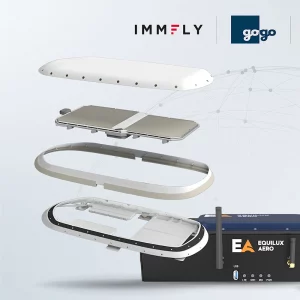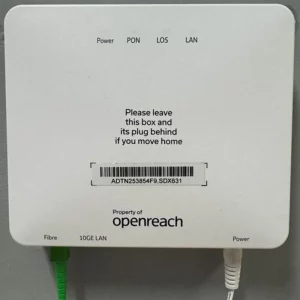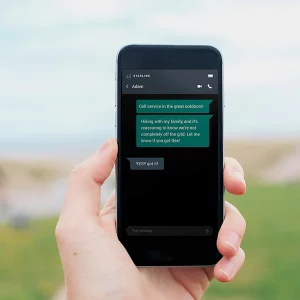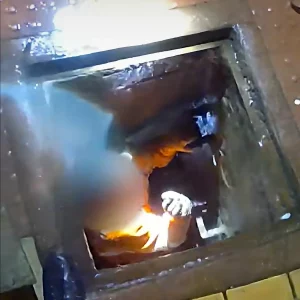Sponsored Links
Ofcom UK Proposals Make Superfast Broadband More Susceptible to Power Cuts
Posted: 28th Jun, 2011 By: MarkJ
 The communications regulator, Ofcom UK, has today proposed new changes to the battery back-up rules for superfast broadband services that could make serious or life threatening connectivity outages more common and put businesses at risk of lost income.
The communications regulator, Ofcom UK, has today proposed new changes to the battery back-up rules for superfast broadband services that could make serious or life threatening connectivity outages more common and put businesses at risk of lost income.A traditional copper line doesn't have to worry about all of this because it draws power from the local telephone exchange. Sadly this is not possible with superfast broadband services, particularly the new generation of fully fibre optic ( FTTH , FTTP ) solutions, because the fibre optic cable is made of glass threads (i.e. not a conductive metal).
As a result any power cut would result in a total outage of your fibre optic broadband connection, which is hardly ideal. The common solution has been to install a battery backup facility at the customer's premises.
Ofcom Statement
"We believe that a battery should always be provided to customers taking fibre optic superfast broadband because if no battery backup facility were provided, this would represent a risk to life as consumers may have no viable alternative to the fixed line telephony service in order to contact the emergency services.
"We believe that a battery should always be provided to customers taking fibre optic superfast broadband because if no battery backup facility were provided, this would represent a risk to life as consumers may have no viable alternative to the fixed line telephony service in order to contact the emergency services.
Sounds fair enough, right? Indeed, yet Ofcom has now decided that this facility should have its backup time cut by up to 75% (from 4 hours of coverage to just 1 hour)! Surely that would "represent a risk to life"? Not according to Ofcom, which appears to be more worried about the costs.
Ofcom's Superfast Broadband Battery-Backup ProposalHard luck if you need to call the emergency services during a power outage, although these days most but not all people do indeed own mobile phones. On the other hand this isn't exactly the best advert for maintaining a fixed line connection. Mobile operators will love this, although modern Smartphone's often seem to run out of power just as quickly.
Ofcom proposes to reduce the requirement on communications providers to provide battery back-up from 4 hours to 1 hour for the following reasons:
* The majority of power cuts that take place in the UK last for much less than an hour with longer outages increasingly unlikely, hence 1-hour of back-up will provide protection for most of the time during power cuts. In addition, the widespread adoption of mobile phones increases the protection available to consumers;
* The backup power supply unit needed to support 1 hour of back-up are smaller, lighter and more discrete than those needed to support 4 hours, hence are more likely to be accepted by customers at installation;
* The batteries that provide 1 hour of back-up are easier to buy, install and recycle than those needed for 4 hours, thus they are more likely to be maintained by customers. Batteries providing 1 hour back-up are also expected to be less expensive to procure, both for communications providers and potentially, in the case of replacement, consumers;
* A battery backup facility of 1 hour allows the ability to make an emergency call in situations where the reason for the call is linked to the reason for the power cut.
Thankfully Ofcom does acknowledge that in some cases consumers may need greater protection and therefore considers that ISPs should take appropriate steps to address such needs. The 10 week consultation is open until 6th September 2011 (here).
Search ISP News
Search ISP Listings
Search ISP Reviews
Latest UK ISP News








Cheap BIG ISPs for 100Mbps+
150,000+ Customers | View More ISPs
Cheapest ISPs for 100Mbps+
Modest Availability | View More ISPs
Latest UK ISP News
Helpful ISP Guides and Tips
Sponsored Links
The Top 15 Category Tags
- FTTP (6843)
- BT (3900)
- Politics (3093)
- Business (2789)
- Openreach (2679)
- Building Digital UK (2522)
- Mobile Broadband (2495)
- FTTC (2147)
- Statistics (2143)
- 4G (2110)
- Virgin Media (2038)
- Ofcom Regulation (1788)
- 5G (1753)
- Fibre Optic (1609)
- Wireless Internet (1602)
Sponsored
Copyright © 1999 to Present - ISPreview.co.uk - All Rights Reserved - Terms , Privacy and Cookie Policy , Links , Website Rules































